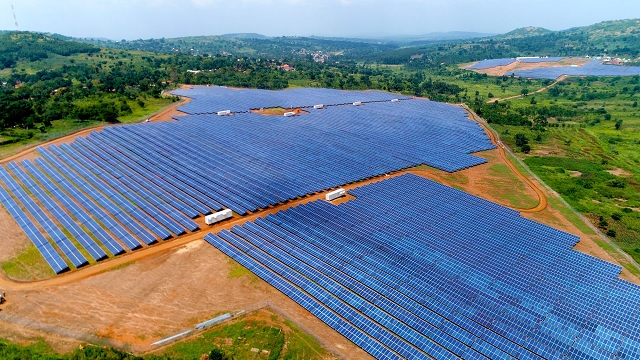
Kampala, Uganda | THE INDEPENDENT | A group of climate change activists are calling on the private sector to join forces with the government in accelerating the energy transition from charcoal to clean solar cook-stoves in the country.
They say private sector investment in cleaner sources of energy will trigger large scale mitigation measures at the grassroots, the major front lines where adverse weather conditions are disrupting people’s livelihoods.
Peter BeHur Nyeko, the Co-founder of Mandulis Energy, an organization dedicated to advocacy for Clean-tech Startup and Social Enterprises, says private sector contribution is critical in upscaling the use of clean energy sources in the country.
Nyeko says more private companies should take bold steps for nature by migrating from the use of fossil fuel-powered generators to cleaner alternatives.
He says the private sector should step in to provide funds required for implementing some of the climate-smart technologies stuck in university incubators.
Around Uganda, isolated green energy investments exist at factory levels where sugar manufacturing companies such as Madhvani Group generate electricity from sugarcane waste. Other plants include mini solar farms in Tororo, Soroti and Mayuge among others.
Miriam Talwisa, a climate change campaigner with the Climate Action Network says civil society should use its vast knowledge of the sufferings of the people at the grassroots to lead the way in policy formulations and implementations.
Climatologists blame the relative rise in global temperature on massive emissions of a set of harmful gases collectively known as the greenhouse gases into the atmosphere. They include water vapour carbon dioxide, methane, nitrous oxide and ozone, with carbon dioxide being the most dangerous in the upsurge of temperature above the pre-industrial state.
The major source of these gases is burning coal and fossil fuels such as oil and gas. Scientists say tree planting, environmental protection and use of cleaner alternative sources of energy provide planet earth windows of escape from climate change disasters, sending waves of energy transition advocacy around the globe.
Their activism has seen some coal fired power plants get closed while leading greenhouse gas emitting countries have taken steps to cut down their emissions.
In 2015, 196 countries which are signatories to the United Nations’ Convention on climate change committed to collectively cutting down the aggregate global greenhouse gas emissions into the atmosphere at differentiated country levels. Under the principle of common but differentiated responsibilities, Uganda whose contribution is less than one per cent committed to cut down emissions from agriculture by 22 per cent by the year 2030.
Suzan Nandudu, the team leader of the African center for trade and development says prominent private sector participation in the establishment and management of national funding mechanisms for technology innovators searching for practical solutions is critical for achieving this ambition.
Some 183 countries that have ratified the Paris agreement are promising accelerated actions aimed at mitigating the adverse impacts of climate change around the world to prevent catastrophic global temperature rise tipping two degrees celsius above the pre-industrial level.
Scientists have warned in various scientific research reports including that of the Intergovernmental Panel on Climate Change (IPCC) that beyond two degrees Celsius of global temperature rise, the earth systems which have traditionally supported life on this planet will break down and trigger the great environmental apocalypse that will manifest in forms of floods, extreme heatwaves, severe droughts and massive food losses.
During the just-concluded annual Geopolitics Conference in Kampala, Anja Berretta, the Head of the Konrad-Adenauer Stiftung (KAS) Regional Programme on energy security and climate change in Sub Saharan Africa also stated that the private sector should stop looking at investment in green energy as a business death trap.
She said the private sector should overcome the fear that investment in green energy initiatives such as off-grid renewable energy plants are valleys of business death to facilitate communities to migrate from dirty sources of energy.
Berretta said the private sector especially the banks should negotiate workable incentives such as delaying loan repayment periods for investments in renewable energy to get geothermal plants, new electricity stations built alongside mega wind plants and solar farms.
Aine Amani, a research fellow at Makerere University said the young people and victims of climate change should rise to the unfolding climate change emergencies to demand firm and bold actions from the private sector including adherence to recommended carbon emission foot prints while doing businesses.
*****
URN
 The Independent Uganda: You get the Truth we Pay the Price
The Independent Uganda: You get the Truth we Pay the Price


